Not even that long ago… depending on how old you are it could have even been in your lifetime… Running was a sport for men only.
Through historical events, female participation in running grew more and more.
There are women whose names we should not forget, women who shaped the history of running for all females to follow.
Let’s cover some of the remarkable moments of female running history that made the sport what it is today.
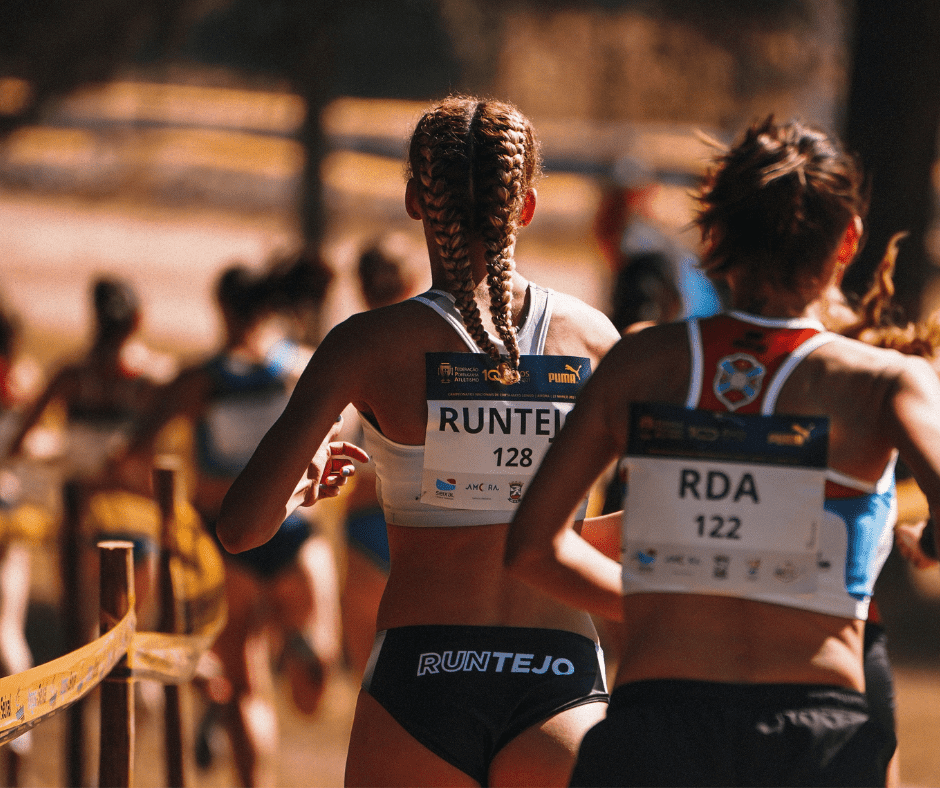
The Rules Regarding Women In Running Races
In the late 1960s, there was a massive movement, of American women demanding equal rights.
This ignited a small group of women that began fighting for the right to run!
Women were forbidden to compete in the Olympic Games in ancient Greece.
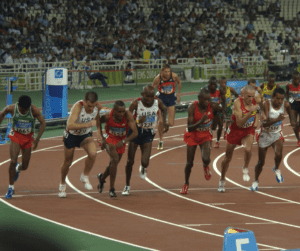
Even worse, married women were forbidden from spectating at any athletic events under the penalty of death!
Pierre de Coubertin founded the modern Olympic Games in 1896 which started in Athens, in the first several games women were not allowed to compete in track and field events.
We then thought things were taking a turn for the positive…
In 1928, at the Olympic games held in Amsterdam, women were allowed to compete in running events for the first time!
But after the 800-meter event, The International Olympic Committee ruled that the collapse of a woman at the finish line meant that the distance was too difficult for the female body and banned the event. (Although years later, the film showed that the woman who collapsed was up on her feet in only 3.2 seconds)
Women had to wait until the 1960 games to compete again.
The fact of the matter was that even into the 1970s women were still being taught that running was a man’s sport.
The Fight For The Women’s Race
In the 1970s, the Olympic Marathon was a lot more established, yet… Women were still not allowed to compete and the struggle to establish a women’s Olympic Marathon was immense!
In the Moscow Games, the longest race for women was the 1,500 meters, which had been instituted in 1972.
March of 1896, Stamatis Rovithi became the first woman to run a marathon (the day after the (men-only) marathon).
The following month, a woman named Melpomene presented herself as an entrant in the Olympic Marathon. Race organizers denied her the opportunity to compete.
Melpomene didn’t let that stop her, she warmed up for the race out of sight.
When the starter’s gun sounded, she began to run along the side of the course, after a while she fell behind the men but persevered. She soon began passing men who had dropped out due to exhaustion.
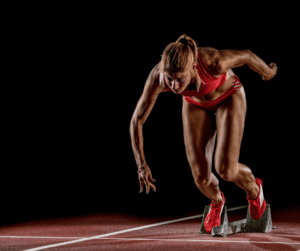
Melpomene arrived at the stadium an hour and a half after the winner.
At this point the stadium was empty yet she was still banned from entering and had to run her final lap outside the building, finishing the marathon in about four and a half hours.
It would be nearly a century before another woman would run the Olympic Marathon…
Key Dates In The History Of Women’s Running.
776 BC
In ancient Greece, young women took part in the Heraean Games – footraces to honor the Greek goddess Hera.
1896
Stamata Revithi runs the marathon course of the first modern Olympic Games.
1922
The first Women’s World Games (the first track and field competition for women) were held in Paris.
1923
The first woman to finish Comrades in an unofficial run: Frances Hayward.
It was the third running of the Comrades Marathon ever. She took 11:35:28 seconds to do the distance and she managed an unofficial 28th position of the 30 male finishers.
1926
Violet Piercy from London became the first woman to run a marathon recognized by the International Association of Athletics Federations, finishing in 3:40:22.
1928
The Olympic Games opens five track and field events for women. The IOC banned women from running more than 200m.
1954
Diane Leather from Staffordshire became the first woman to run a mile in under five minutes. (4:59.23)
1960
Huge breakthrough! The first year in history that women were allowed to participate in five running events in the Summer Olympics.
Including the 800-meter race!
1967
Kathrine Switzer was the first woman to run the Boston Marathon and gained an official bib registered under K.V. Switzer.
It is well remembered that race official Jock Semple tried to stop her while running the marathon, but was blocked by her boyfriend.
She finished the race in 4:20. Afterwards she was banned.
1972
Another huge breakthrough!
The AAU allowed women to register for marathons. But… they had to start at a separate time and even a separate starting line.
Women protested against this at the New York City Marathon by sitting at the starting line as the gun went off.
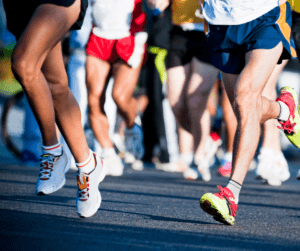
1975
Women were officially allowed to run The Comrades Marathon.
Elizabeth Cavanagh finished in 10:08:00 and goes down in the record books as the first official female Comrades winner.
1977 & 1978
A major step forward in women’s running gear!
The first sports bra was made as well as the first women-specific running shoes designed by Nike.
1979
Norwegian Grete Waitz became the first woman to run a sub-2:30 marathon, winning her second New York City Marathon in 2:27:33.
1980
Mary Decker from America became the first woman to run a mile in under 4:20, running 4:17.55.
1984
The first women’s Olympic Marathon in Los Angeles.
Joan Benoit became the first woman to win gold in the event.
2002
Pam Reed becomes the first woman to win the Badwater Ultramarathon.
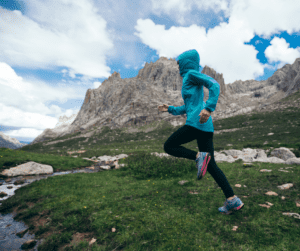
In the same year, Rosie Swale-Pope from the UK became the first woman to ‘run around the world’ in 5 years.
2003
Paula Radcliffe ran the London Marathon at 2:15:25, setting a world record.
2007
Paula Radcliffe became an inspiration to mothers around the world when she ran and won the New York City Marathon just 10 months after giving birth to her daughter.
2012
Shalane Flanagan, Desiree Davila, and Kara Goucher won with record times 1st, 2nd and 3rd places at the U.S. Olympic Trials Marathon.
The same year at the London Olympic Games, a young girl f only 19 years old named Sarah Attar became the first woman from Saudi Arabia to compete in an Olympic track and field event.
2014
Jo Pavey became the oldest female European champion by winning the 10,000m at the European Championships. (40 years and 325 days old)
2015
Caroline Wöstmann became the first South African woman to win Comrades in the 20th century!
She also went on to become a doubleTwo Oceans winner for 2015 & 2016.
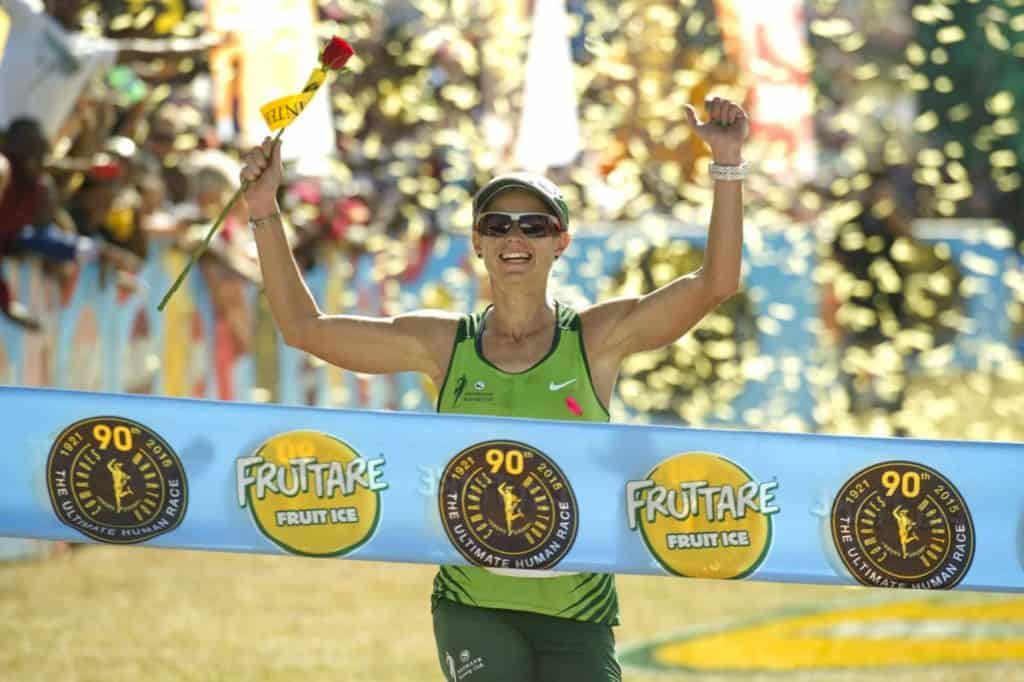
2017
Maria Lorena Ramírez from the Tarahumara community wone the 2017 Ultra Trail Cerro Rojo Ultramarathon wearing sandals and a skirt.
The same year Shalane Flanagan became the first American woman to win the NYC Marathon since 1977 (2:26:53).
2019
Sifan Hassan broke the women’s mile world record (4:12.33) at the Monaco Diamond League.
Brigid Kosgei from Kenya broke the women’s marathon world record by 81 seconds!
She won the Chicago Marathon in 2:14:04.
The same year Gerda Steyn broke the Comrades up-run record with a time of 5:58:53, becoming the first woman to complete the up-run in under six hours.
2022
Gerda Steyn set a new women’s record in the Two Oceans Marathon with a time of 3:29:42, and became the first athlete in 22 years to win three consecutive titles.
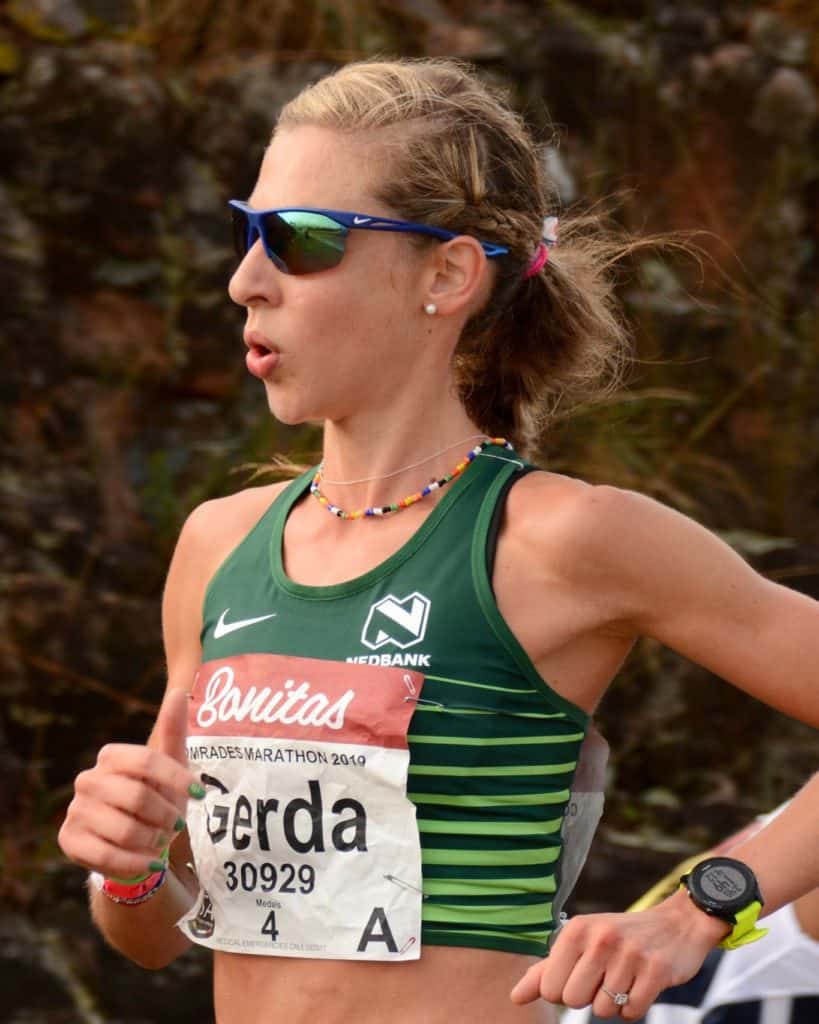
When Running Became Popular For Women
Although running has no age or gender restrictions, it inspiringly developed into a popular woman’s sport over the past 40 years.
- Women and girls made up 57% of the 17 million U.S. race finishers in 2015.
- Women’s participation in the New Your Marathon began to grow, and in the 1979 New York City Marathon, 1,203 of the 10,477 finishers were women—nearly 12 percent of the field.
The growth continued steadily, and by 2019, about 42 percent of the 53,640 finishers of the TCS New York City Marathon were women!
In 2021, women made up about half of all finishers of NYRR races at all distances; for finishers ages 18–39, close to 60 percent are women.
- In 2021 23% of ultra runners were women, compared to 14% 23 years ago.
As a female runner, it is liberating to see the massive strides women have taken throughout history to make running become “our” sport!



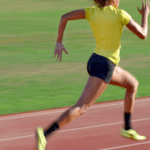
Comments are closed.